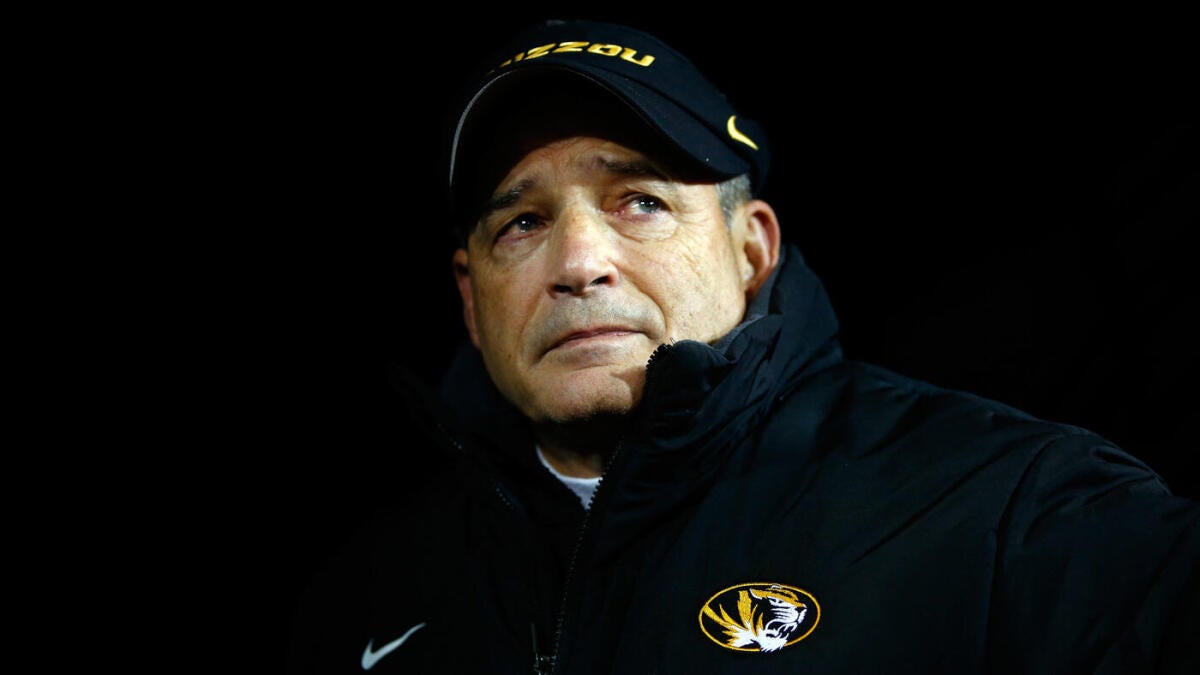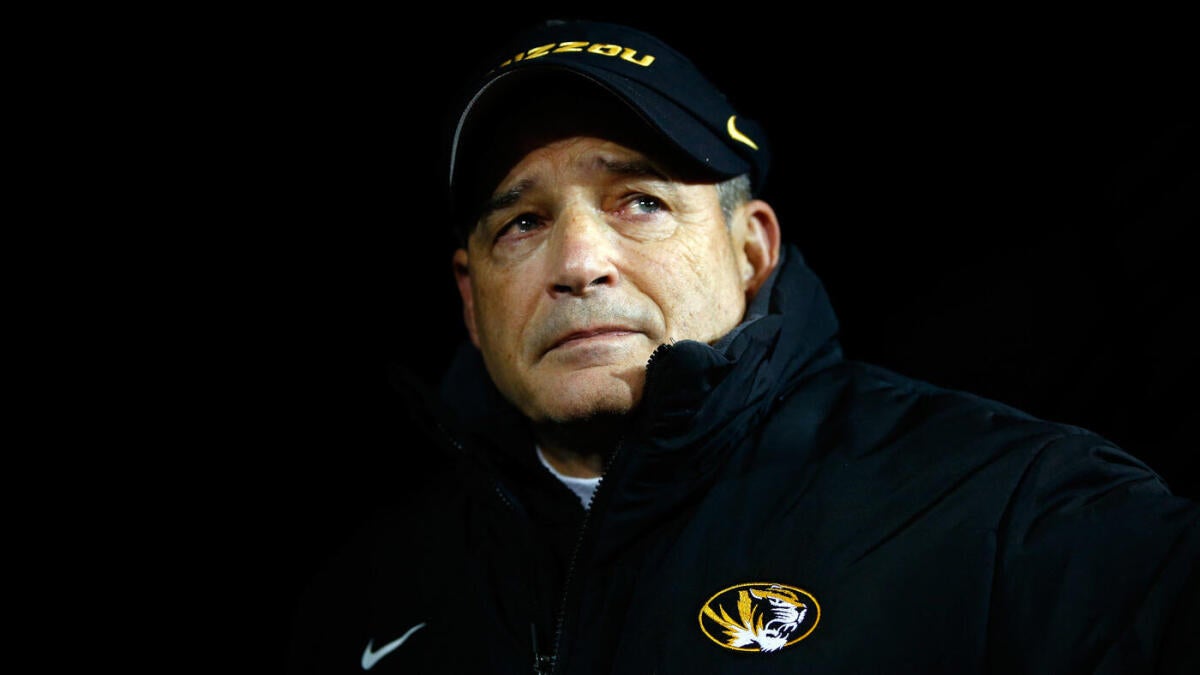The recent arrest of former University of Missouri (Mizzou) football coach Gary Pinkel for driving while intoxicated (DWI) has sparked significant discussion within the college football community and beyond. The incident, which occurred late Monday night in Camden County, Missouri, has brought renewed scrutiny to Pinkel’s legacy and raised important questions about the potential consequences he may face. While the full details of the arrest are still emerging, this event warrants a closer examination of the circumstances, legal implications, and broader impact on Pinkel’s reputation.
The Arrest and Initial Reports
Gary Pinkel, 73, was arrested on suspicion of DWI at approximately 11:46 p.m. on Monday in Camden County, near the Lake of the Ozarks. The arrest was conducted by the Missouri State Highway Patrol (MSHP). According to initial reports, Pinkel was taken to the Camden County Jail and subsequently released. As of Tuesday afternoon, formal charges had not yet been filed in Camden County.
The MSHP report indicates that Pinkel was accused of driving under the influence of alcohol. The specific circumstances leading to the arrest remain unclear, but the available information suggests that the incident occurred late at night and resulted in law enforcement intervention. The absence of immediate charges suggests that further investigation may be underway, which is not uncommon in DWI cases. Prosecutors often take time to review evidence, including breathalyzer results, field sobriety tests, and any other relevant factors before deciding whether to file charges.
Legal Ramifications and Potential Consequences
The potential legal consequences for Gary Pinkel are significant. In Missouri, driving while intoxicated is a serious offense with penalties that can vary depending on the specifics of the case, including prior offenses, the driver’s blood alcohol content (BAC), and whether there were any aggravating factors, such as property damage or injuries.
For a first-time DWI offender in Missouri, the potential penalties include:
- Jail Time: Up to six months in jail.
- Fines: Up to \$1,000.
- License Suspension: A 30-day license suspension, followed by a restricted driving privilege for 60 days.
- Community Service: Potential for court-ordered community service.
- Alcohol Education Program: Mandatory participation in a substance abuse traffic offender program (SATOP).
However, Pinkel’s case is complicated by his prior DWI arrest in 2002, which could lead to more severe penalties if he is convicted in the current case. In Missouri, a second DWI offense within a five-year period is classified as a Class A misdemeanor, which carries stiffer penalties, including:
- Jail Time: Up to one year in jail.
- Fines: Up to \$2,000.
- License Suspension: A one-year license suspension, with the possibility of a restricted driving permit after two months.
- Ignition Interlock Device: Mandatory installation of an ignition interlock device for at least six months.
- Community Service: Increased community service requirements.
Given Pinkel’s age and lack of recent offenses, prosecutors might consider a plea agreement, especially if the evidence is not overwhelming. This could involve pleading guilty to a lesser charge, such as reckless driving, which carries less severe penalties. The absence of any reported injuries or property damage related to the incident will also likely be a factor in the prosecution’s decision-making process. However, the ultimate outcome will depend on the specific facts of the case, the evidence presented, and the discretion of the prosecuting attorney.
A Tarnished Legacy?
Gary Pinkel’s legacy at Mizzou is undeniable. During his 15-year tenure as head coach, he transformed the program into a consistent winner, leading the Tigers to 10 bowl appearances, five division titles, and two SEC Championship Game appearances. He is the winningest coach in Mizzou football history and is revered by many fans and former players.
However, this DWI arrest inevitably casts a shadow over his accomplishments. While his on-field achievements remain untarnished, his off-field conduct is now under scrutiny. The arrest raises questions about his judgment and personal responsibility, potentially impacting his public image and the way he is remembered by some.
The impact on his legacy will depend on how the situation unfolds. If he takes responsibility for his actions, expresses remorse, and commits to making amends, it’s possible that the long-term damage to his reputation will be minimized. However, if he attempts to downplay the incident or avoid accountability, it could further erode public trust and damage his legacy more significantly.
A Pattern of Behavior?
It’s worth noting that this is not the first time Pinkel has faced DWI charges. In 2002, while still the head coach at Mizzou, he was arrested for suspicion of driving while intoxicated. He subsequently pleaded guilty to a misdemeanor charge of drunken driving and received a suspended sentence and probation.
This prior incident adds another layer of complexity to the current situation. It raises questions about whether Pinkel has addressed the underlying issues that led to these incidents and whether he has taken appropriate steps to prevent them from happening again. The previous offense will undoubtedly be a factor in the prosecution’s decision-making process and could lead to more severe penalties if he is convicted in the current case.
The pattern of behavior also raises concerns about Pinkel’s personal life and whether he has sought help for any potential alcohol-related issues. While it’s possible that the 2002 incident was an isolated mistake, the recurrence of a similar offense suggests that there may be deeper issues at play. Addressing these concerns will be crucial for Pinkel as he navigates the legal and public relations challenges ahead.
The University’s Response
As of now, the University of Missouri has not issued an official statement regarding Pinkel’s arrest. Given his status as a former coach, the university’s response is likely to be measured and cautious. It’s possible that the university may choose to distance itself from Pinkel or suspend any affiliations it may still have with him.
The university’s primary concern will be protecting its reputation and ensuring that the incident does not negatively impact its athletic program or its broader image. The university may also want to demonstrate its commitment to responsible behavior and send a message that drunk driving will not be tolerated.
In the past, universities have taken various approaches to handling similar situations involving former coaches or staff members. Some institutions have chosen to publicly condemn the behavior, while others have remained silent to avoid further scrutiny. The University of Missouri’s decision will likely be influenced by its existing policies, the severity of the incident, and the potential fallout from any public response.
Moving Forward: Accountability and Redemption
The road ahead for Gary Pinkel will likely involve a combination of legal proceedings, personal reflection, and potential efforts at redemption. Taking responsibility for his actions is a critical first step. This includes acknowledging the seriousness of the offense, expressing remorse for his behavior, and cooperating with law enforcement officials.
He may also need to address any underlying issues that contributed to the incident, such as alcohol abuse or poor decision-making. Seeking professional help, such as counseling or therapy, could demonstrate his commitment to change and prevent similar incidents from occurring in the future.
Ultimately, Gary Pinkel’s legacy will be defined not only by his accomplishments on the football field but also by how he responds to this challenging situation. By taking responsibility, making amends, and demonstrating a genuine commitment to change, he can potentially mitigate the damage to his reputation and begin the process of rebuilding trust within the community.
A Wake-Up Call
Gary Pinkel’s DWI arrest serves as a stark reminder that even individuals who have achieved great success and are admired by many are not immune to making mistakes. It underscores the dangers of drunk driving and the importance of making responsible choices. This incident should serve as a wake-up call, not only for Pinkel himself but for everyone, to prioritize safety and avoid driving under the influence of alcohol.
The consequences of drunk driving can be devastating, affecting not only the driver but also innocent bystanders, families, and communities. By raising awareness about the risks and promoting responsible behavior, incidents like this can help prevent future tragedies and encourage individuals to make better choices.
In conclusion, Gary Pinkel’s DWI arrest is a complex issue with legal, personal, and reputational implications. While his on-field achievements remain significant, his off-field conduct is now under scrutiny. The outcome of this situation will depend on how he responds to the charges, addresses any underlying issues, and takes steps to rebuild trust within the community. Ultimately, this incident serves as a reminder of the importance of accountability, responsibility, and the dangers of drunk driving.












